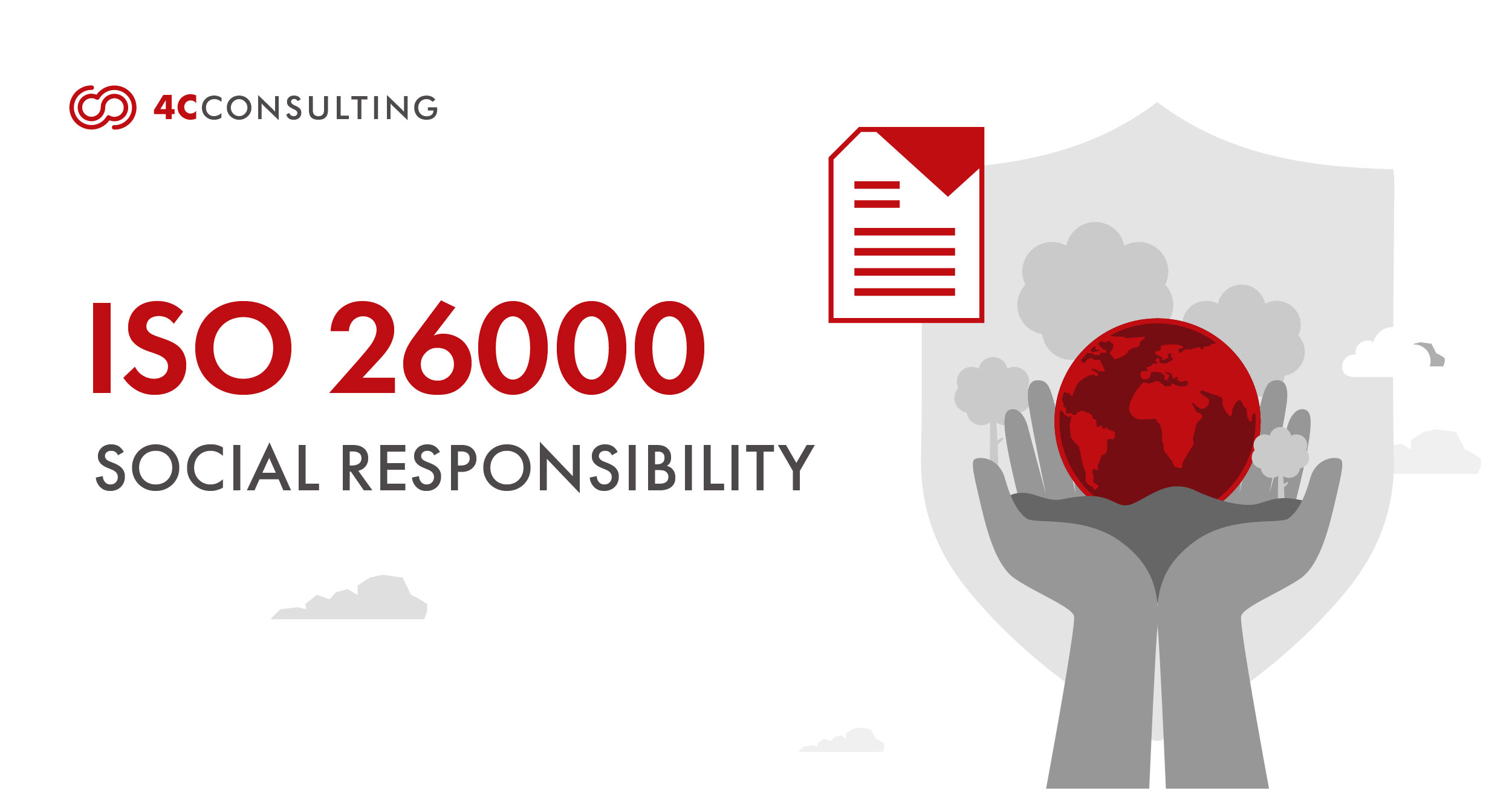
Seven Reasons to Adopt ISO 26000 For Social Responsibility
1st Dec, 2023
In a world where businesses face rising surveillance for their social and environmental impact, adopting standards that promote ethical and responsible behavior is crucial. ISO 26000, the international standard for social responsibility, has emerged as a guiding light for organizations aiming to make a positive impact on society. This comprehensive guide outlines seven compelling reasons why businesses should consider adopting ISO 26000 to enhance their commitment to social responsibility and accountability.
ISO 26000 provides a clear path for ethical behavior and sustainability. Developed by the International Organization for Standardization (ISO), it offers a comprehensive framework for seamlessly integrating social responsibility into business operations, aligning practices with the principles of sustainability, ethics, and accountability. So, what is ISO 26000, and why should your organization consider it? In this blog, we’ll explore this standard and discuss seven key reasons that are essential for any forward-thinking business looking to make a positive impact on society.
.
What is ISO 26000: Social Responsibility?
ISO 26000 is an international standard that offers guidance on integrating social responsibility into an organization’s operations. It provides a framework to help organizations contribute to sustainable development by balancing economic, environmental, and social aspects in their decision-making processes. In essence, ISO 26000 acts as a roadmap for companies looking to enhance their commitment to social responsibility.
.
How to Implement ISO 26000?
Before diving into the seven compelling reasons to adopt ISO 26000, it’s essential to understand how to implement it.
Implementing ISO 26000 involves a systematic approach, including the following key steps:
- Commitment: Begin by obtaining top-level management support and a commitment to social responsibility. This forms the foundation upon which ISO 26000 implementation rests.
- Engagement: Identify your stakeholders and engage them in meaningful dialogue. This helps you understand their expectations and concerns.
- Integration: Integrate social responsibility into your organization’s strategy, policies, and procedures. Align your objectives with the principles and core subjects outlined in ISO 26000.
- Assessment: Evaluate the potential social, environmental, and ethical impacts of your operations. This involves identifying risks and opportunities for improvement.
- Implementation: Implement policies and initiatives that address the identified issues and opportunities. These should be aligned with ISO 26000’s core subjects and seven principles.
- Monitoring and Measurement: Continuously monitor and measure the effectiveness of your social responsibility efforts. Adjust your actions as needed to achieve better results.
- Communication: Report transparently on your social responsibility performance. Engage with stakeholders and share your successes, challenges, and plans for improvement.
.
7 Reasons to Adopt ISO 26000 in your organization
- Guidance for Ethical Business Practices:
ISO 26000 sets out seven fundamental principles of social responsibility, including accountability, transparency, and respect for human rights. By embracing these principles, your organization ensures that it operates with integrity and adheres to ethical business practices. This not only fosters trust among stakeholders but also distinguishes your company as an ethical leader in your industry.
- Enhanced Reputation and Competitive Advantage:
In an era where consumers are increasingly conscious of the social and environmental impact of their purchases, a strong commitment to social responsibility can set your business apart. ISO 26000 helps you showcase your dedication to responsible business practices, thereby enhancing your reputation and giving you a competitive edge.
- Mitigation of Risks:
ISO 26000’s comprehensive approach encourages organizations to assess and address social and environmental risks. By doing so, your business can proactively mitigate potential issues, such as regulatory violations, negative publicity, and supply chain disruptions, ultimately saving resources and preserving your brand’s reputation.
- Positive Impact on Society and the Environment:
Beyond risk mitigation, ISO 26000 helps your organization actively contribute to societal and environmental well-being. By integrating sustainability principles into your operations, you can make a positive impact, supporting local communities, reducing your carbon footprint, and participating in meaningful social initiatives.
- Improved Stakeholder Relations:
Effective stakeholder engagement is a core component of ISO 26000. By fostering constructive dialogue and involving your stakeholders in decision-making processes, you can build stronger relationships and ensure that your actions align with their expectations.
- Cost Savings and Efficiency:
Embracing ISO 26000 principles can lead to cost savings through improved resource efficiency. For example, waste reduction, energy conservation, and responsible sourcing can result in lower operational costs and increased profitability.
- Legal and Regulatory Compliance:
As social and environmental regulations continue to evolve, ISO 26000 provides a practical way to ensure your organization remains compliant with the latest standards and laws. This helps you avoid legal challenges and penalties while upholding your commitment to social responsibility.
In conclusion, ISO 26000 is not just a set of guidelines; it’s a roadmap to a better, more responsible future for your organization and society as a whole. By adopting ISO 26000, you commit to ethical business practices, enhance your reputation, mitigate risks, make a positive impact, improve stakeholder relations, achieve cost savings, and ensure legal compliance. Embracing ISO 26000 is a strategic move that not only benefits your bottom line but also the world we live in. It’s a win-win scenario that makes the world a better place while setting your organization up for long-term success in an increasingly socially responsible business environment.
.
How 4C Consulting Can Help You Embrace ISO 26000?
Incorporating ISO 26000 into your organization’s practices can bring about substantial positive changes, whether your focus is on social responsibility or meeting stakeholder expectations. Regardless of where you currently stand in your ISO 26000 journey, 4C Consulting is here to assist you every step of the way, from providing essential information to guiding you through the certification process. Interested in learning more about the requirements of ISO 26000, Contact us now and know more on the steps involved in adoption to embark on this important journey.
